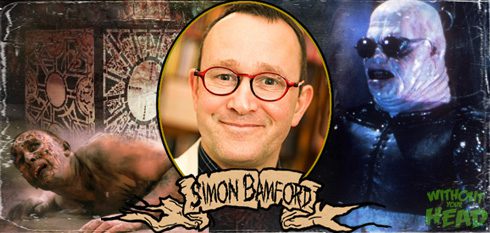It’s a new year, and I’m pleased to announce my first interview was with none other than Simon Bamford, known for his role in Clive Barker’s cult classic, Hellraiser. It is indeed a treat to chat to the one and only Butterball, who took the time out of his extremely busy schedule to get up close and personal with us, sharing his experiences and giving a few important pointers on acting and performing.
We were excited to chat with him, and of course, add to the Cenobite collection. I’ve previously had amazing interviews with The Chatterer Nicholas Vince and The Female Cenobite Barbie Wilde. So, a chat with Simon is indeed a wonderful addition!
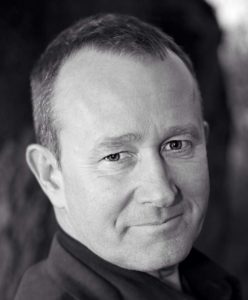
PopHorror: Your first experience in performing was playing the role of The Fool in a London production of King Lear. What inspired you to become an actor/performer, and where did you get your inspiration from?
Simon Bamford: The King Lear production was in London and was seen by a young up-and-coming writer/director called Clive Barker who arranged a meeting afterwards and invited me to join his new theatre group, The Dog Company. I started performing at school many years before that. Loved the experience of transformation and decided at a young age that this was what I wanted to do.
I was accepted into Birmingham Theatre School, Mountview Theatre School in North London and the Royal Academy of Dramatic Arts (RADA). RADA wanted me to wait a year before starting, but I was too impatient and keen to get going, so I decided to go the school in London.
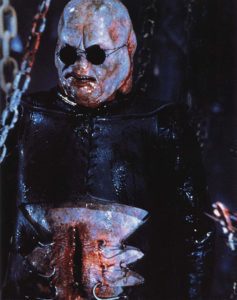
PopHorror: You were featured in both Hellraiser (1987), and Hellbound: Hellraiser 2 (1988) as the Butterball Cenobite, as well as Ohnaka in Clive Barker’s Nightbreed (1990). How did it feel to be part of the closely knot unit of The Dog Company and work together on those projects that have gathered a large fan base?
Simon Bamford: After The Dog Company disbanded in the early ’80s, I did a few theatre tours in the UK. It was by chance, a couple of years later, that I rang Clive to see what he was up to. The timing was fortuitous as he was just casting Hellraiser and asked if I’d be interested in playing a monster. Nobody was really expecting it to be the success it later became. It had a small budget and was shot at a tiny studio in Cricklewood. However, Clive had surrounded himself with a wonderfully creative team of technicians and artists.
Once the US studios saw the initial rushes, they increased the budget and an alternative ending was scripted which could pave the way for a sequel. The same team of cast and crew remained fairly unchanged for the first two Hellraiser films and also for Nightbreed. This made for an easier working relationship, as we were all aware of each other’s work. It also took away the initial stress of starting each new project.
PopHorror: Tell us more about your experience with the makeup and costume in Hellraiser as Butterball. Personally, I cannot imagine the discomfort you must have had…
Simon Bamford: Clive initially said there would be a little makeup involved for Butterball. The reality was similar to having several pillows taped tightly over my entire head. No eye holes for vision, no ear holes for sound and no nose holes. Breathing was only through the mouth which constantly filled with saliva because the large prosthetic teeth fitted over my own meant I was unable to close my mouth. The mask was around 2 inches thick, made of foam latex, molded inside to be an exact match to my face. Once glued inside, I was blind, deaf and dumb for sometimes 12 hours a day. It was incredibly claustrophobic, and I had a few panic attacks during the 3 months filming on each shoot. A deeply unpleasant experience.
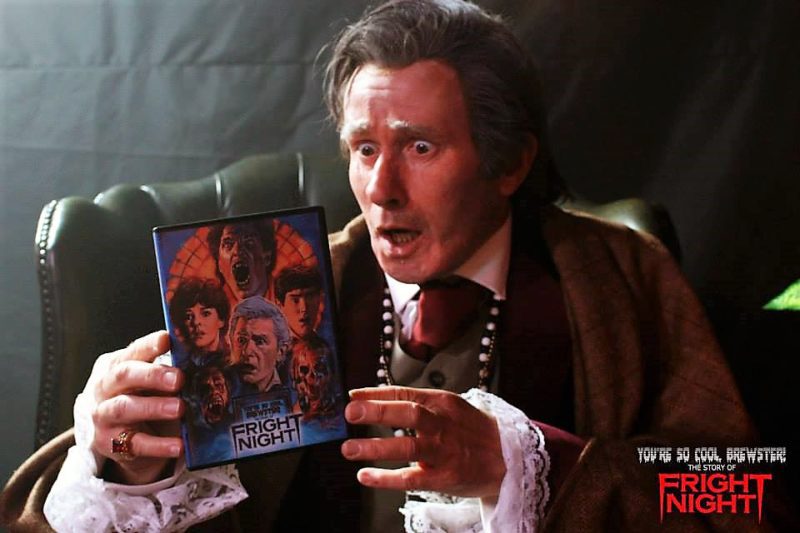
PopHorror: Do you prefer acting for television, film or theatre? Which is more rewarding for you personally as a performer?
Simon Bamford: They are so different. I was trained to work in theatre and spent many decades in this medium. Film work requires a different skill which I am constantly striving to accomplish. As I get older, I find myself being offered a more diverse range of roles. Character work which is very liberating, but requires starting from scratch each time. In the last couple of years, I’ve played an accountant who’s stolen from the mafia, an investment banker, a bigoted 1970s father who discovers his son is gay, a groundsman at a dilapidated stately home and an 80-year-old lady haunted by the ghost of her abusive husband.
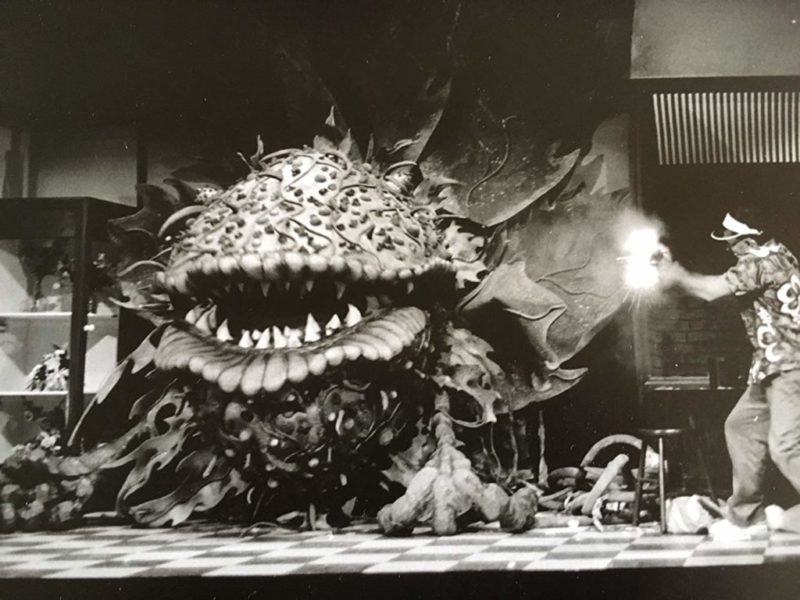
PopHorror: What has been your favorite role so far, and how do you personally get into character?
Simon Bamford: Without a doubt, the two characters I play in Episode 2 of the Dark Ditties series. The film, “Mrs. Wiltshire,” was the most challenging and rewarding work I’ve ever had the privilege of undertaking. Similar to the Alan Bennett talking heads series, my character had many monologues delivered straight to camera. Neil Morris’ writing was quite brilliant. We have recently finished shooting episode 3 for the series, and are in pre-production for episode 4. Episodes 1, “The Offer,” and 2, “Mrs. Wiltshire,” are available to watch now on Amazon and Amazon Prime worldwide.
PopHorror: Has there ever been a role that you’d love to play that you haven’t had a chance to yet?
Simon Bamford: When I reached my late teenage years, the play Equus came out, and I really wanted to play the role of Alan Strang. I’m far too old now. These days, I would be more suited to the role of the psychiatrist, Dysart. I am a great fan of science fiction, so I would love to do work on a project in that genre. When we were shooting Nightbreed at Pinewood studios, the Aliens 3 film was casting. I managed to get an audition but, sadly, didn’t get the job.
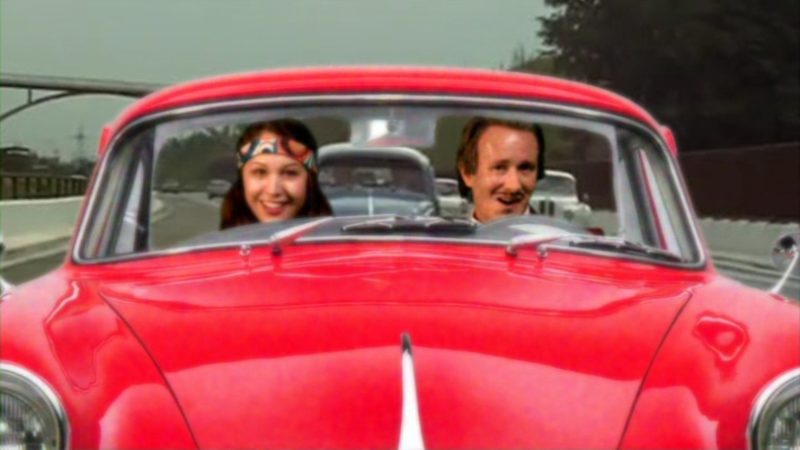
PopHorror: You’ve worked with some well-known actors/actresses, such as Jonas Armstrong, Sophie Ward, Tony Todd and Golden Globe winner Joanne Froggatt. What experiences did you gain from working with these established performers? What do you feel, as an actor, are the benefits thereof in comparison to working with amateur actors or actresses who have yet to find their footing?
Simon Bamford: It is fascinating watching other performers work. Everyone has different techniques. I think the trick is to find a way of creating that works for you. That said, every project is totally different. Trying to ascertain from reading the script, the writer and directors vision for the project, is my first step. On film, much of the work is done in isolation with little if any rehearsal time, and virtually no contact with the other actors before the first days filming. Usually, the lead actors set the pace and style for the film’s performances. I always watch them closely when possible to see what is required. One of the joys for me on “Mrs. Wiltshire” was being able to set this for myself.
Working with Jo Froggatt taught me important lessons in handling emotional scenes. When we were filming Starfish, I would come home and sob, her performance was so heartbreaking with its compelling honesty. Honesty and truth tend to be the keywords for an actor. However, as Helen Mirren says in her masterclass, you also have to be interesting. All of the actors you mentioned, including the wonderful David Cronenberg, are masters of quietly understated performances.
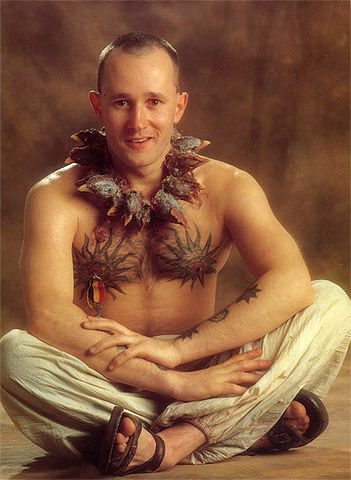
PopHorror: You’ve travelled extensively worldwide for roles. Could you tell us a bit more about those diverse cultures you’ve worked with? Have these experiences enabled you to grow as an performer on a personal level?
Simon Bamford: For several years, I worked with Richmond Productions, rehearsing in a scout hut at the end of Sir Richard Attenborough’s back garden, and then taking UK theatre productions around the world. Although first aimed at an ex-pat audience, the shows quickly became popular with international conglomerates, giving us a certain prestige and the businesses an entertaining platform from which to network. We worked in Dubai, Abu Dhabi, Al Ain, Karachi, Bucharest, Sofia, Kuala Lumpur and Cairo.
Taking productions such as Shirley Valentine, Neville’s Island, The Complete Works Of William Shakespeare (abridged), An Evening With Gary Lineker, Relatively Speaking and Postcards From Maupassant, I strongly believe that travel helps us to grow as we experience new cultures and find different ways of approaching life that can challenge our norm. To be able to travel and perform was the dream job for me. I was given the opportunity to take over the company some years ago but declined, as that level of logistics would have worried me to an early grave. I miss those days though.
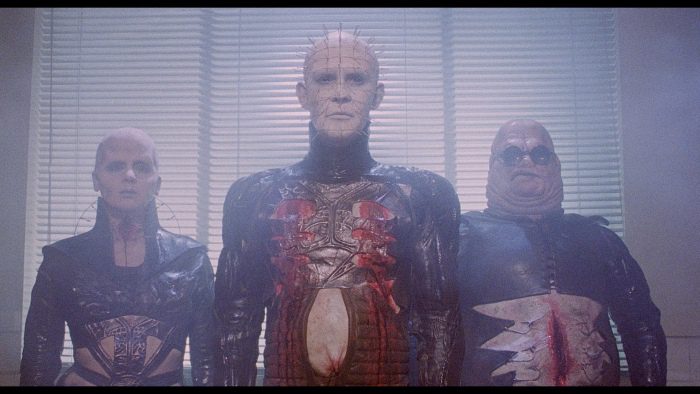
PopHorror: Apart from acting, what other training have you had… voice, dance, stage combat, etc.?
Simon Bamford: Mountview Theatre School gave training in fencing, stage fighting, mime, voice, the phonetic alphabet, dance, tap, Stanislavski and the Alexander Technique. I declined the singing lessons as they cost extra, and I couldn’t afford them. It came as a huge surprise then to find myself being cast in many musicals after graduation, starting with the first UK tour of Jesus Christ Superstar and including working with the amazing Topol on Fiddler On The Roof and playing Seymour Krelborn in two different productions of Little Shop of Horrors.
PopHorror: Have you experienced any real-life actor’s nightmares?
Simon Bamford: I’ve been terrified on a few occasions. I played the lead role of Steven Flowers in a production of Privates on Parade. I couldn’t get my head around how the piece worked from an audience’s perspective and didn’t feel as though I’d nailed the character properly. I thought I was hopeless and letting everyone around me down. I’ve never been so scared. One of the most important techniques they teach at drama school is how to deal with this situation, ways to find and explore different avenues. It all worked on opening night and was a well-received and moving production.
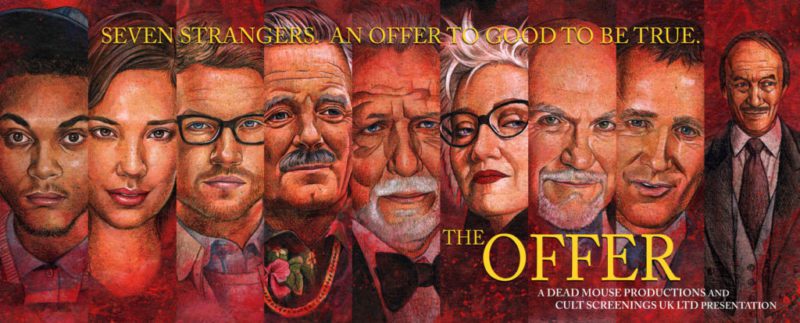
I completely dried, on my own on stage, singing a difficult piece during Little Shop of Horrors. We had been touring for many months and my brain just froze, refused to remember the lines. I had to “La, la, la” along to the tune until the words returned. During Fiddler On The Roof, the revolve which was supposed to bring the rest of the cast of 40 around to me so I could continue my scene froze, leaving me standing alone at the front of the stage, waiting, with no more dialogue. It is what makes live theatre so much fun. In film during Nightbreed, I did get hit on the head by mistake with the head of an assault rifle during one of the takes. Really hurt.
PopHorror: Have you ever forgotten your lines, or a prop, or choreography during a performance?
Simon Bamford: I don’t think I’ve ever forgotten a prop. Choreography doesn’t come naturally to me, so I tend to drum it into my head until I could do it in my sleep. When I first started out, I would know everybody’s lines, not just mine, such was my enthusiasm. It gets harder as you get older to learn dialogue. I’ve just returned from a beach holiday where I learned the script for episode 4 of the Dark Ditties series, “Finders Keepers.” I did the same for “Mrs. Wiltshire.” Being on holiday, away from the distractions of home, makes it easier to concentrate, and therefore easier to open your mind to the repetition of learning lines.
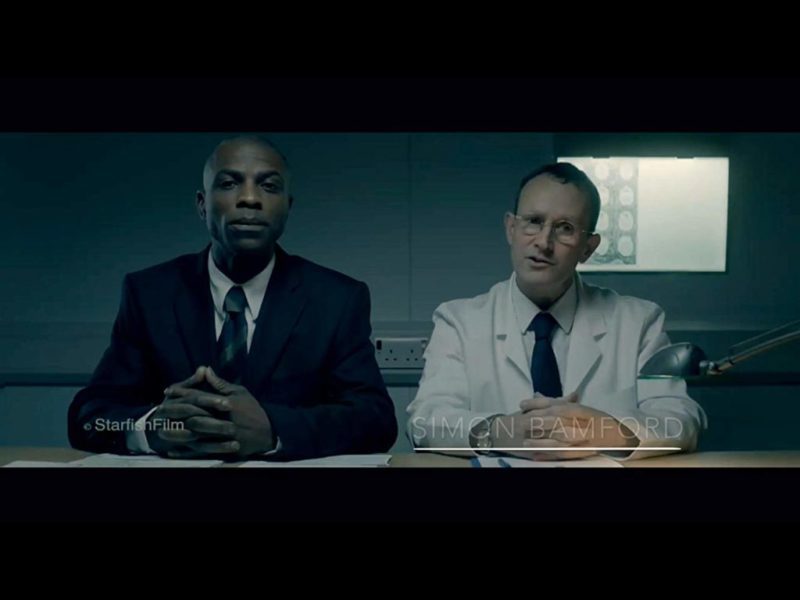
PopHorror: Apart from acting, you’ve also produced a short, Arcade (2015). Have you produced any other productions or ever gotten a chance to be on the other side of the table at an audition?
Simon Bamford: To be honest, I was more of a hands-off Executive Producer for Arcade. It meant they could use some of my contacts for the funding of the piece. I have directed and co-directed several productions for theatre which was very rewarding. Casting is always a horrible process when you know how stressed the poor actors are feeling. Interesting though, sometimes casting directors would send us a curveball… an actor not meeting our posted criteria because it made us view the character from a different perspective, and they often got the job.
PopHorror: Have you ever experienced anything embarrassing or unexpected in your career as an actor?
Simon Bamford: I had a few nude scenes when I was younger, which are always awkward to do initially. More recently in Arcade, I had a scene in bed with an actress 20 years my junior, which I found acutely embarrassing, especially when the director told us we were to be straddled by the cameraman. We then had to give our best love-making faces straight into the camera. Not your average day at work.
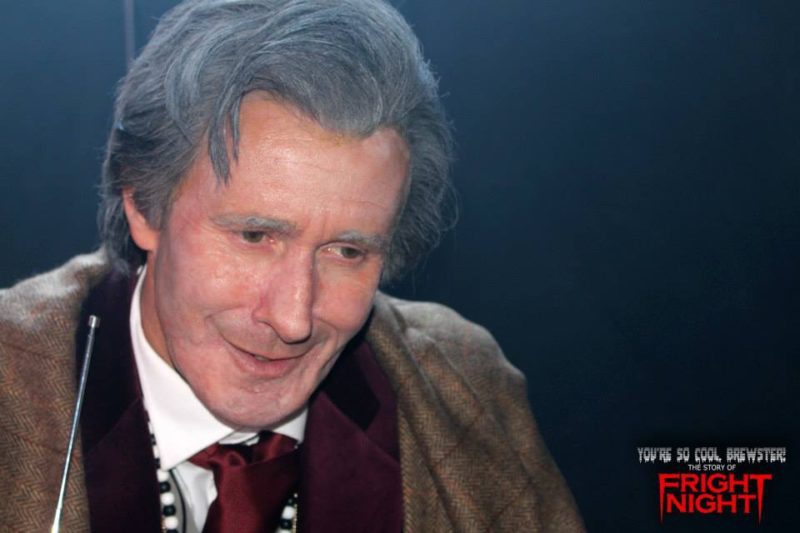
PopHorror:: What are the negative and positive parts of being an actor?
Simon Bamford: It’s a profession full of highs and lows. Enormous self-doubt, which comes from constant rejection and periods of unemployment, are balanced with the thrill of nailing a character, working with amazing directors, technicians and, of course, the other actors. I don’t recommend it as a profession, but it is addictive, and once you are hooked, there is no better way of earning a crust, in my book.
PopHorror: Do you have any advice for those aspiring to become actors or performers?
Simon Bamford: It is as much about luck as talent, don’t take the knocks personally, never stop learning, network as much as you comfortably can and, most of all, enjoy it.

We’d like to send a big THANK YOU to Simon Bamford for taking the time to chat with us. To keep in touch or up-to-date with your favorite Cenobite, connect with Simon via his official Twitter or Facebook. You can also check out his website. Stay tuned to PopHorror for more exciting news about all things horror!
 PopHorror Let's Get Scared
PopHorror Let's Get Scared
